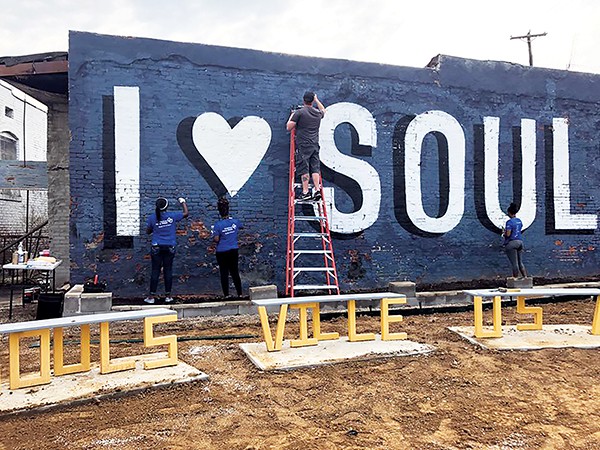Every year, as much as 23 million tons of plastic are leaked into our oceans, rivers, and seas worldwide. Taking proactive steps to reduce plastic pollution has never been more critical. The pervasive presence of plastic waste poses severe risks to our ecosystems, health, and future generations, but by making conscious efforts to minimize plastic use, communities like Memphis can experience a variety of benefits and foster a cleaner, greener future.
1. Protects our waterways
Plastic pollution has a devastating impact on our waterways, but individual actions to reduce plastic use can significantly benefit our local rivers and streams. In Memphis, the mighty Mississippi River is a lifeline, providing essential resources as well as local recreational opportunities. Its local watersheds also have a part to play. The Loosahatchie River, Wolf River, and Nonconnah Creek in Memphis all feed into the Mississippi River Watershed, the fourth largest in the world. The Mississippi River eventually drains into the Gulf of Mexico, leading to the North Atlantic Ocean. Unfortunately, plastic waste often finds its way into these waterways, contributing to pollution that extends far beyond our city’s borders.
When residents choose to reduce their plastic consumption — opting for reusable water bottles, bags, and containers — they contribute to a healthier city. These seemingly small actions prevent debris from accumulating locally, reducing the risk of harm to aquatic life and preserving the natural beauty of our environment. Clean rivers and streams support diverse wildlife and provide cleaner water for human use, creating a ripple effect that extends to the broader ecosystem and contributes to cleaner oceans globally.
2. Reduces health hazards
The benefits of reducing plastic pollution are not limited to environmental preservation; they also have direct, tangible impacts on public health. Plastics, especially when improperly disposed of, can release harmful chemicals into the air and water. These can contribute to respiratory issues, contaminate drinking water, and pose additional health risks. In Memphis, decreasing plastic pollution can lead to cleaner air and safer drinking water, reducing the incidence of health issues associated with this practice.
3. Advances our economy
Embracing sustainable practices can have significant economic benefits for Memphis. A cleaner environment can attract tourism and enhance the city’s reputation as a desirable destination for visitors. Visitors are drawn to cities with pristine natural attractions, spotless streets, and a commitment to environmental sustainability, leading to increased tourism revenue and economic growth.
Moreover, investing in waste management infrastructure and sustainable technologies creates job opportunities and stimulates municipal development. By transitioning to more sustainable waste management practices, such as recycling and composting, we can create eco-friendly jobs in industries like waste collection, recycling processing, and renewable energy production. These jobs not only provide employment opportunities but also contribute to the growth of Memphis, positioning us as a leader in environmental innovation and sustainability.
4. Strengthens community relationships
Reducing plastic pollution can also strengthen community relationships by fostering collaboration and collective action. Organized clean-up efforts and sustainability initiatives provide opportunities for residents to come together, bond over a shared commitment to environmental stewardship, and make a tangible difference in their neighborhoods.
In Memphis, grassroots organizations, neighborhood associations, and local businesses frequently organize cleanup events, park beautification projects, and sustainability workshops. These initiatives not only improve the physical environment but also cultivate a sense of pride and ownership among residents. By working to address these challenges, communities build stronger social connections, trust, and resilience — laying the foundation for a more vibrant and inclusive city.
As individuals, businesses, and policymakers, we must recognize the interconnectedness of environmental, social, and economic well-being and take concerted action to create a cleaner, greener future for our city. By working together and prioritizing sustainability, we can build a more resilient, prosperous, and inclusive Memphis for generations to come. Let us seize this opportunity to make a positive impact and pave the way for a brighter tomorrow.
Janet Boscarino founded Clean Memphis in 2008, driven by her passion for creating a cleaner and greener environment.

 Facebook/Clean Memphis
Facebook/Clean Memphis